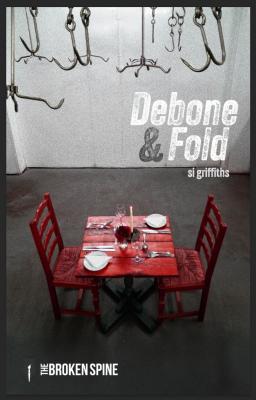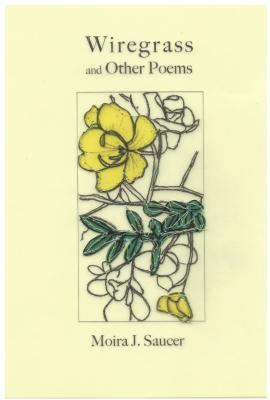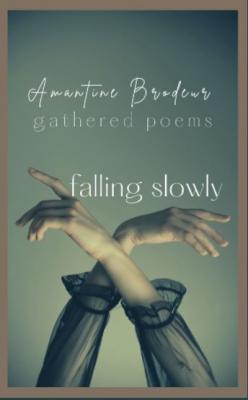It is always a pleasure to write a review or provide a book blurb. Some recent ones below.
Anna Saunders, 'Eurydice in the Ruined House', from Indigo Dreams
Eurydice in the Ruined House is one of many questions, ancient and modern, exploring control and desire, identity, what we choose to forget. Anna Saunders latest poetry collection from Indigo Dreams, taps into a vein of shifting power and bordering on Obsessive connection, focusing on Eurydice and the ruin of the world, home, and herself.
These incredibly powerful poems go to the core of what it is to exist, with a dark optimism of self, against The Fates.
Nature beautifully weaves through these poems, as companion and symbol between human and more than human, the multitudes of being alive and the changing dynamics of intimate connections. Heaving with barely restrained sensuality, this collection makes the blood pulse, Dionysus would be proud. A gorgeous collection, for greedy consumption.
This is a first look, cover and release in June 2025.
Si Griffiths, ‘Debone & fold’ from The Broken Spine
Si Griffith’s Debone & Fold is an immersion into the experience & realities of working within a commercial kitchen, and the all encompassing worldview of a chef. His language of love, sensuous & sexy, immediate & visceral, speeds from image to image, from desperation to hope, and community. Skilled consistent metaphors, shape poems, and chunky stanzas convey a vibrant and unflinching urgency, as relationships: back and front of house; public and private, are split open, revealing a buffet of sometimes dark delights.

Karen Pierce Gonzalez, ‘Sun and Moon Wired Together’ from Midsummer Dream House
Sun and Moon Wired Together is Karen Pierce Gonzalez’s latest offering, published by Midsummer Dream House. The contents page of this collection, a poem in itself, charts the immediate and imagistic movement through a day, a reel of cinematic snapshots.
These multilayered and vibrant poems, in colours and meaning, explore the instinct to survive and grow, within urban settings. The long winding stanzas, punctuation light, foretells her storyteller’s pacing and skill, revealing image by image, delicate descriptions of transient everyday moments, captured within a frame of loss, love, and climate resilience. Exploring our place within society, and what it means to inhabit.
Jen Feroze, 'Tiny Bright Thorns' from Nine Pens Press
Published on London Grip.
Tiny Bright Thorns is Jen Feroze’s debut pamphlet, published by Nine Pens Press. The twenty two poems explore motherhood, love and connection, and reflect on the hopefulness of young children.
The poems vary in form through conversational stanzas to shape poems, to more traditional couplets, with a number after poets and artists. Feroze expertly translates the overwhelm of the unknown of the first post partum months, addressing, calling for, and forming a community of new mothers, with recognition and the offering of solidarity.
‘The Fourth Trimester’ speaks to exhausted new parents, highlighting the universe connection of being suddenly submerged into the unknown,
These first weeks are uncharted and you are adrift…… but you are swimming.
And then there are shallows, there are footholds.
using sustained metaphor through the narrative and a lullabying cadence.
‘When, At Bedtime, I Ask My Daughter What She Wants To Be When She Grows Up, And She Says ‘A Fox’’ is full of encouragement to a child to live outside of practicalities, and parents to embrace the world though a different lens. The repetition, used in the three ‘At Bedtime’ poems,
instead…
instead...
instead…
a visceral reminder. This theme of upholding childhood misbeliefs and encouraging curiosity and wonder, the task of shaping the balance of which realities we let in, and which we don’t, and how and when we should, is an undercurrent throughout the pamphlet.
‘Don’t Buy Her Flowers’ addresses the powerless magnitude of new parenthood, the long flowing sentences turning instructive in the last stanza. These poems about the confusion, exhaustion and new position of self, as a mother, are generous in their imagery and intent.
‘Tiny Bright Thorns’ is an exposure of early days motherhood, a magical song of the natural world - so much joy and wonder, so much uncertainty in the constant letting go. In the last poem ‘When The World Ends’, Feroze’s line
taste them deliberately with my mind
is a fitting synopsis of this delicate nest of small-scale wonder, and the protest act of loving unselfconsciously.
Feroze’s first collection 'A Dress With Deep Pockets' won the 2024 International Book & Pamphlet Competition by the Poetry Business, and will be published by Smith|Doorstop in Spring 2025.
Di Slaney, 'January conversations with dogs', from Valley Press
Di Slaney’s ‘January conversations with dogs’ from Valley Press is a beautifully illustrated, by Jane Burn, sequence poem recording twenty-one conversations while walking her dog Taffy.
Diary entry format, these tiny snapshot poems witnessing the landscape and meetings with strangers and locals, recording with precise observation and tonal weather, what connects us. The form of one, unpunctuated, stanza per day reinforces the theme, with notes on the dogs’ responses endearing. Each day an overlap of many conversations.
‘25th January’ uses a succession of colours and images to reflect grief
talked about an acrylics
course painting streaks…
there’s never really grey
in the sky only shades of blue
‘10th January’ the briefest entry,
Saw no one
heartless wind
Slaney’s illustrated pamphlet is an enchanting way to highlight the small, but consequential, interactions of the everyday and their resonance.
The Whiskey Tree 'Untamed Identity' Wave 1 from The Broken Spine
Karen Pierce Gonzalez, ‘Coyote in the basket of my ribs’ from Kesley Books
Pierce Gonzalez’s ‘Coyote in the basket of my ribs’ is an exquisite exploration of restlessness. She expertly transcribes the sadness of the untameable, displaying a deep connection with wildness. Her coyote dream poems are intertwined with a delicate, involving understanding of loss, of dependency on the just out of reach, and the melding of domesticity and other.
Moira J Saucer, ‘Wiregrass’ from Ethel Zine
In this hand-finished, debut chapbook, from Ethel Zine, Moira J Saucer explores 19 poems, permitting an insight into a world of loss and discovery. Set over 15 years she reveals her experience through ‘a tent of opaque anguish’, while acknowledging buds of optimism. Her inclination to tend, despite the challenges, and pain, she faces, is apparent through these poignant and moving poems - ‘knitting wholeness together’. ‘Wiregrass’ the title poem, vividly shows the edge of human nature, living in the American Wastelands.‘

Elisabeth Horan, ‘The Mask’ from The Broken Spine:
Incredibly powerful, an unashamed assertion of woman, ‘The Mask’ explores the exquisite intensity of desire. An intimate portrait of the cerebral and visceral meaning of yearning, Elisabeth’s lyricism urges uprising: the relinquishing and seizing of control. The rhythmical sense of abandon within these ekphrastic responses, intertwined with Frida’s native Spanish, feed a lingering connection between the artist’s and poet’s tenacious spirits.

Amantine Brodeur, ‘Falling Slowly’ from Bookhub publishing:
Amantine’s ‘Falling Slowly’ promises a journey through longing, the unravelling of relationships, and the shifting patterns of desire for sensual connection. This beautiful affecting collection explores the uncovering of bodies which share intimacy, corporeal proximity of living and loss, the intoxication of dwelling and visceral affection, alongside the brutality of coercion and stratum of toxic behaviours. Layers of bougainvillea, midnight scents and sepia reflections of the Mesopotamic, travel these gathered poems of love and trauma, centred on a friend’s suicide, through nuanced expression and allegories of nature. Amantine expertly depicts though a lens of spontaneous lyrical language quiet lament, an innate yearning, and devotion to the human condition with all its delicacies. Her poems record the intent of a poem to be written, and the capacity of the feminine laced with discord.
